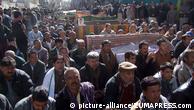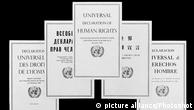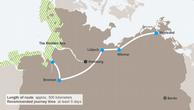 Mobile hotspots are awesome. They pack fast internet access into tiny, pocketable devices so you can stay connected wherever you go, but they vary in cost, speed, and reliability. With so many options in devices and carriers, you might end up paying for more than you need or getting too little and ending up with overages. What's the best way for you to get a affordable and reliable mobile hotspot? We decided to find out.
Mobile hotspots are awesome. They pack fast internet access into tiny, pocketable devices so you can stay connected wherever you go, but they vary in cost, speed, and reliability. With so many options in devices and carriers, you might end up paying for more than you need or getting too little and ending up with overages. What's the best way for you to get a affordable and reliable mobile hotspot? We decided to find out.
With the proliferation of 4G mobile technologies and the reduced cost of 3G data, mobile hotspots are no longer luxuries for business people and the wealthy. Anyone can pick up a portable device for under $100 and get service at a low cost, or even for free. You can even turn your smartphone into a Wi-Fi hotspot, negating the need for a separate device. It's a really great time to take advantage of mobile data, but there are so many options to make sense of and chances are you're not even aware of a few of them. In this post we're going to take a look at the best options for getting a mobile hotspot based on your needs.
For Casual Use or Backup Internet Access
Mobile hotspots have low data caps, so even if their speeds can match your hardwired connection, you won't be able to download hundreds of gigabytes without incurring serious overages. For people who live to download, a mobile hotspot won't be more than a supplemental device or something for casual use with, say, a tablet or laptop when away from home. Chances are you don't want to pay much (or anything) for a device you're only going to use a few times a month or in the event of an emergency. In the past you'd be out of luck, but now you have mobile broadband options that'll hardly cost you anything at all.
Freedompop
 Freedompop offers 512MB of mobile broadband per month for absolutely nothing. You'll have to put down a refundable deposit of about $100 for a device, but if you send it back before the year is up in the condition you received it you'll get that money back (though you'll have to pay shipping). Freedompop also allows you to earn additional data by completing offers like signing up for car insurance information or answering a survey. You can also earn 500MB of data through referrals. If you'd rather pay, plans start at $10 per month for 1GB and work their way up to $60 per month for 10GB. Casual users will likely prefer the $18 per month plan, which will get you 2GB of data (plus any extra you earn).
Freedompop offers 512MB of mobile broadband per month for absolutely nothing. You'll have to put down a refundable deposit of about $100 for a device, but if you send it back before the year is up in the condition you received it you'll get that money back (though you'll have to pay shipping). Freedompop also allows you to earn additional data by completing offers like signing up for car insurance information or answering a survey. You can also earn 500MB of data through referrals. If you'd rather pay, plans start at $10 per month for 1GB and work their way up to $60 per month for 10GB. Casual users will likely prefer the $18 per month plan, which will get you 2GB of data (plus any extra you earn).
Freedompop offers a delightfully tiny little hotspot as its flagship device, but you can also get little USB modems for your laptop and a data sleeve for your iPod touch (to effectively turn your iPod touch into an iPhone). Data is provided over Sprint's aging WiMax network, which offers speeds around 5-7mbps with coverage quality that highly depends on your area. (You can check coverage here.) Because the device only uses WiMax and can't fall back on 3G data, it may be completely useless to those in poor reception areas. If you get good coverage, however, it's a wonderfully free/cheap way to get online in a pinch.
Karma
 Karma offers a very similar product to Freedompop. The hotspot hardware is essentially identical, but white in color, and data is provided via Sprint's WiMax network as well. The cost difference? Karma charges $79 for their hotspot and $14 for a 1GB of data. This may seem like a considerably worse deal, but it's not because of one interesting aspect: your data never expires. You don't pay $14 per month, but rather $14 for every gigabyte of data you use whenever you happen to use it. If you're not planning to use the service frequently, this is a great deal. Additionally, you can earn 100MB of free data by simply sharing your connection with others.
Karma offers a very similar product to Freedompop. The hotspot hardware is essentially identical, but white in color, and data is provided via Sprint's WiMax network as well. The cost difference? Karma charges $79 for their hotspot and $14 for a 1GB of data. This may seem like a considerably worse deal, but it's not because of one interesting aspect: your data never expires. You don't pay $14 per month, but rather $14 for every gigabyte of data you use whenever you happen to use it. If you're not planning to use the service frequently, this is a great deal. Additionally, you can earn 100MB of free data by simply sharing your connection with others.
Karma suffers from the same network issues as Freedompop, as Sprint's WiMax coverage is inconsistent across the United States. Before you buy, make sure you're covered so you don't end up with a $79 pocketable brick.
Your Smartphone
 If you already have a smartphone, you already have a (potentially free) mobile hotspot at your disposal. Modern Android and iPhones come with a built-in option to turn your cellular data connection into Wi-Fi for up to five other devices. On many plans this can cost up to $25 extra per month. While this nets you a fair amount of extra data, it's a hefty price to pay for using the limited data you've already purchased. Fortunately, you have a few workarounds.
If you already have a smartphone, you already have a (potentially free) mobile hotspot at your disposal. Modern Android and iPhones come with a built-in option to turn your cellular data connection into Wi-Fi for up to five other devices. On many plans this can cost up to $25 extra per month. While this nets you a fair amount of extra data, it's a hefty price to pay for using the limited data you've already purchased. Fortunately, you have a few workarounds.
PdaNet for Android and iPhone allows you to tether for the one-time cost of the app ($0-29), rather than a monthly fee. iPhone users will need to jailbreak, but Android owners just need to install the app. Some carriers pay attention to unauthorized tethering and may warn you to stop, but we've only seen this happen to people who still have unlimited data grandfathered into their plans. PdaNet can attempt to hide your tethering activity by serving up mobile sites instead of desktop ones, but that isn't necessarily ideal if you're tethering your phone to your laptop.
If you don't want to risk incurring the wrath of your carrier, some carriers actually offer free hotspot access if you have a shared data plan. To sign up for a shared data plan, you need more than one device (or it won't be cost-effective). If you don't share a plan with your family or significant other, find some friends and sign up with them. The more devices on your account, the cheaper each month will be for everyone. You'll have to do a little extra work to collect payments each month, but webapps like WePay help solve that problem.
Of course, with a shared data plan you'll need to actually share data. Most plans cap out at 20GB total, so you'll need to make sure that's going to be enough for all involved. If it is, check out what your carrier has to offer. AT&T provides a wonderful mobile share data plan calculator. Verizon has a similar offering. Multi-person plans at Sprint and T-Mobile offer unlimited data already, so sharing it is kind of irrelevant. Either way, you have options if you use a major carrier. Third-party carriers like Virgin Mobile, who resell Sprint's network, generally charge extra for a hotspot ($15/month in the case of Virgin), but not always. Ting, for example, offers free hotspot access on all supported phones regardless of your plan.
What it comes down to is this: if you're a casual user or just need mobile data for emergencies, you'll want to utilize a carrier that offers hotspots for free or via mobile share. If you're not, consider a tethering app instead.
For Moderate or Frequent Internet Access
When casual data usage won't cut it and you need as many gigabytes as you can get (or, at least, a lot of them), smaller carriers often won't do the trick. This makes picking the right one pretty difficult because you have many options and even more variables. When you're planning to use a lot of cellular data you want to know where you can get the most comprehensive coverage, the fastest speeds, and the most data for the cheapest price. (Fortunately, you don't have to figure out the best hardware because each carrier will stick you with their flagship mobile hotspot and call it a day). To figure out your best option, we're going to answer those questions.
Who Provides the Best Coverage?
 Figuring out who has the best data coverage in the United States is a tricky question because you could be talking about various generations or just one. For our answer, we're going to look at LTE since it's fast and where the market is heading with pretty much all US carriers. That said, we'll also consider who offers solid 3G coverage for fallback purposes. First, let's take a look at the rankings (from best to worst):
Figuring out who has the best data coverage in the United States is a tricky question because you could be talking about various generations or just one. For our answer, we're going to look at LTE since it's fast and where the market is heading with pretty much all US carriers. That said, we'll also consider who offers solid 3G coverage for fallback purposes. First, let's take a look at the rankings (from best to worst):
<0l>
- Verizon offers the widest LTE coverage of any provider and their 3G coverage is very comprehensive.
- AT&T offers the second best LTE coverage in the country with very comprehensive 3G coverage (on par with Verizon). If you live in a big city and mostly travel to larger cities, AT&T's LTE coverage should be sufficient.
- Sprint offers paltry LTE coverage, as the company initially bet its money on WiMax (a competing "4G" cellular data technology). That said, Sprint's WiMax coverage helps bridge the gap and its 3G coverage is decent.
- Clear also utilizes WiMax, but is in the process of building out an LTE network. Their WiMax coverage is decent, much like Sprint's.
- T-Mobile currently offers no LTE coverage, but it's coming. Their "4G" data technology is really just higher-bandwidth 3G data technology, but the coverage is quite good.
-
When it comes to coverage, Verizon will get you the best for LTE and 3G but AT&T is also a solid option if you're in a larger city.
Who Has the Fastest Network?
 Network speeds are a little easier to measure, but they vary depending on the device you own and where you live. Back in 2010, Verizon had the fastest 4G service because they were the only network with LTE. Though that has changed, Verizon still often wins out. Gizmodo tested a few LTE devices on various networks and Verizon generally came out on top. PC Magazine tested 4G networks in Houston and found AT&T's to be the fastest. According to Android and Me, AT&T wins on download speeds and Verizon on uploads. Basically, you could research this topic to no end, finding different tests revealing different results with different devices in different locations. Too many variables make this a difficult question to answer.
Network speeds are a little easier to measure, but they vary depending on the device you own and where you live. Back in 2010, Verizon had the fastest 4G service because they were the only network with LTE. Though that has changed, Verizon still often wins out. Gizmodo tested a few LTE devices on various networks and Verizon generally came out on top. PC Magazine tested 4G networks in Houston and found AT&T's to be the fastest. According to Android and Me, AT&T wins on download speeds and Verizon on uploads. Basically, you could research this topic to no end, finding different tests revealing different results with different devices in different locations. Too many variables make this a difficult question to answer.
So what do you do? If you can visit a nearby store for each mobile provider you're considering and run a couple of speed tests, you'll get the best idea of what performance will be like for you. If you can't use the coverage maps listed above to see if AT&T or Verizon offer more towers near you. Both networks are very fast, to the point that people can't seem to figure out which one is speedier than the other, so go with the one that services your area (and frequent areas you visit) best.
What's the Cheapest Plan for the Largest Amount of Data?
 Of all three questions, the cheapest plan is the easiest to answer because all you have to do is compare price for 4G service. First, let's take a look at who offers the cheapest rate for 10GB of data per month (with both 3G and 4G data, unless noted):
Of all three questions, the cheapest plan is the easiest to answer because all you have to do is compare price for 4G service. First, let's take a look at who offers the cheapest rate for 10GB of data per month (with both 3G and 4G data, unless noted):
- Clear: $50 (Unlimited data, but WiMax only)
- Freedompop: $60 (WiMax only, no 3G)
- Sprint: $80 (but you get 12GB, as Sprint's only plan lower than that is 6GB for $50)
- Verizon: $80 (if using a dedicated mobile hotspot)
- T-Mobile: $80 (but no true 4G)
- AT&T: $50 for 5GB of data (which is the maximum for a single data-only account) or $140 for 10GB of data (by utilizing a mobile share plan)
- Karma: $140 (although Karma's intent isn't to offer monthly service)
Ultimately, Clear is the way to go if you don't mind a contract and are okay with WiMax-only coverage. Freedompop offers the next best value for WiMax only. If you want actual LTE coverage, you ought to go with Verizon. You might save money on a plan if you're using your smartphone as a hotspot, but if you're looking for dedicated hardware you'll save the most on LTE using Verizon.
When it comes to devices, they're all pretty cheap. You can get hotspots on contract for about $50. Karma offers the cheapest off-contract hotspot for $79. Freedompop is technically cheaper because you pay a $100 deposit, but you might not get that back if you keep the device for over a year or lose some of the packaging. Wherever you go, plan to budget at least $50.
What's the Best Deal Overall?
Overall, your best option will depend on your priorities. Here's how it all breaks down:
Verizon wins out as the best on average. You get the best LTE coverage, what will likely be the fastest network in your area, and you won't pay a ton more per month to get it. If speed and coverage are a priority, Verizon is the best choice.
Clear offers the best value, if their coverage supports you. Unlimited data for $50 a month is a great deal if you don't mind the slower speeds of WiMax and their coverage area supports you. Clear also plans to build out an LTE network, so things may get even better in the future. If you're looking for the most cost-effective way to get plenty of 4G data, go with Clear.
Ultimately, what you choose depends quite a bit on your personal needs but the good news is you now have lots of options when it comes to fast mobile hotspots. If you weigh these choices well, you should have no problem finding the best carrier and plan for you.
Photos by Valentina R. (Shutterstock), Thomas Le Bas (The Noun Project), and Aleksander1 (Shutterstock).



















